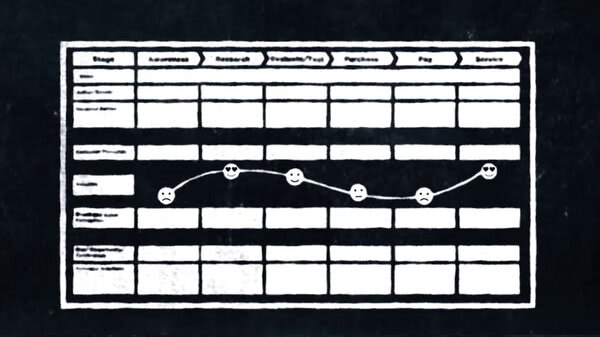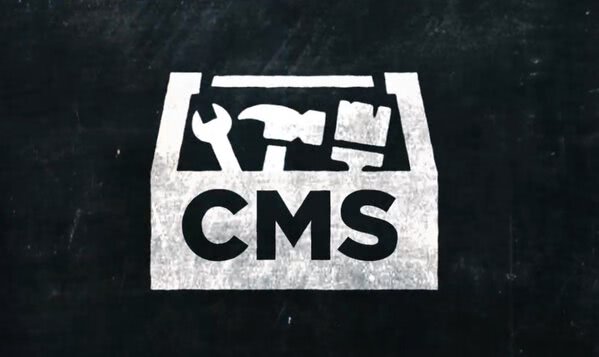So, do you need a CMS for your project?
Let's say that you're a digital marketing manager for an enterprise-size business, and you're working with the marketing team to add an app to your company's website.
Perhaps you've even hired an agency to create this app, or maybe your internal creative-services group has the bandwidth to do it for you. That question of whether to incorporate a CMS into this app or to go with a static build is still worthy of careful consideration for reasons we're gonna get into right now.
Here are some of the questions you should ask yourself before deciding if a content management system is right for your project.
The first question is, do you plan to have some serialized content in your app? In other words, do you want to incorporate the kind of content that consists of repeating elements, such as a line of products, periodic blog entries, or promotional contest every few months.
If you don't, then a CMS is probably not even a consideration. A CMS is really only worth including if you're planning to make regular updates or additions to the content of your website or app.
Let's assume the answer to that question is yes. Then you're in the running for a CMS.
The next question to ask yourself is how often do you need to change this content? If it's less than quarterly, a CMS is unlikely to be worth the added expense, but let's try to do a little bit better than just "unlikely."
We can answer this "To CMS, or not to CMS" question with a little math and some educated guesses.
First, what is the cost of building the CMS? You'll need an estimate from your agency to fill in this blank.
Next, estimate the lifetime of the website or app. Is it two years? Three?
With your agency's help, try to project how many updates and how long it will take. --i.e., how costly it will be to implement each scenario. Then plug them into your spreadsheet.
For the next step, I like to break it down into frequent, seldom and most likely cases with respect to how often and to what agree you will be updating the website or app, unless you're in the unlikely position of knowing exactly how many times your project will be updated and what each update will consist of over the project's lifetime.
Once you've calculated all three scenarios with costs, you should be able to compare the potential savings... right? Well, not quite.
You still have to consider the time it will take for you or your marketing colleagues to make updates to the CMS yourselves, as opposed to the agency updating your static app manually. After all, your time has value as well. In fact, some might say that your time is the most valuable of all.
Once you've estimated all of the variables, then you can be fairly confident of which option --static app, or app with CMS-- makes the most sense from a financial point of view.
Other than return on investment, what else should one consider when determining whether or not to build the CMS?
We're not here to judge, but if you're a bit of a perfectionist, you might not want to lock yourself into a CMS.
At first, this seems counterintuitive. After all, if you're a perfectionist, wouldn't you want the ability to change the content yourself whenever some brilliant addition occurs to you? Well, yes, but there's a catch to that.
A CMS is, in effect, a template. The point of that template is to save you time and money whenever you have to modify your app's content.
But a template also imposes restrictions on the changes you're able to make to your app compared to that which a gifted designer and coder could do working in tandem. You want to understand and accept what those limitations are before deciding to employ a particular CMS.
Otherwise, you'll end up calling your agency and asking them to make changes to the template. And calling your agency is what you were trying to avoid when you paid for a CMS in the first place.
Similarly, if it's important to you that your website or app looks original and unique, here again, you might want to think twice about going with a CMS.
Unless you've paid to have a custom-made CMS, many other web apps --some of them used by your competitors-- may share your template.
While your unique content, images, font and color choices will differentiate your app from those of others, sharp-eyed users will still be able to spot a similar "templated look" if you go with a popular open-source CMS like WordPress.
Perhaps the most important thing to consider, other than the cost/benefit of creating the CMS, is how quickly you need changes when you call for them.
With a CMS, you could deploy a member of your own staff to make changes within minutes of deciding they're needed. But if you need to call your agency or an outside coder to make those changes on your behalf, it could take more time, depending on how busy the agency is and what level of service agreement you have with them.
That difference in time won't matter much if you're just adding one more item to your already extensive product lineup. But what if you need to take down content that contains a factual error--or worse, some glaring social or political gaffe.
The difference between having your mistake paraded back and forth across the shooting gallery of social media for 20 minutes, versus 20 hours, might mean everything for your business.
And remember, it's not always about you. What if your team includes a dozen web-marketing specialists, each of whom will be updating product pages week by week?
Well, you can use the same math as before, but yes, this is almost certainly an ideal situation for a CMS. If each specialist is able to make those changes directly through a CMS, this could ensure that your content is kept up to date on a daily basis. Search engines love that kind of thing!
In this scenario, it might also help to have different levels of administration, so that a limited number of super admins can edit and proof the content before it's finally pushed live. Just be sure to limit the number of super admins.
One last consideration, and this is not huge, but a CMS-based website will take a bit longer to load than a static website. That's because every time someone goes to a site with a CMS in the back end, it actually generates the HTML code that you ultimately see.
If the CMS code is elegantly written, expressly for your business, that delay isn't likely to be more than a fraction of a second.
With an open-source CMS stuffed with plug-ins and other modifications accumulated over the years, the lag can become quite noticeable.
So to close, I'm going to let you in on a little secret: When our clients come to us saying they want us to build a CMS for them because they want the added control, we often push back.
It's not that we don't want the work. After all, it's an important part of what we do. But more often than not, our clients end up under using their content management systems.
Sometimes, the marketing managers who requested these systems move on to other positions. Their successors can't be bothered to learn a CMS, and they just end up calling their agency, instead.
Sometimes, the project shelf life is shorter than anticipated, or the number of updates required is over estimated.
Finally, most agencies can usually update content within hours when an emergency arises --and at very little cost.
We love building CMSs, but we always ask twice before we do.
Okay. I hope this video has been of some help in deciding whether a CMS is a good choice for your business needs. If the answer to that question was yes, then you'll probably want to take a look at our next video in this series.















